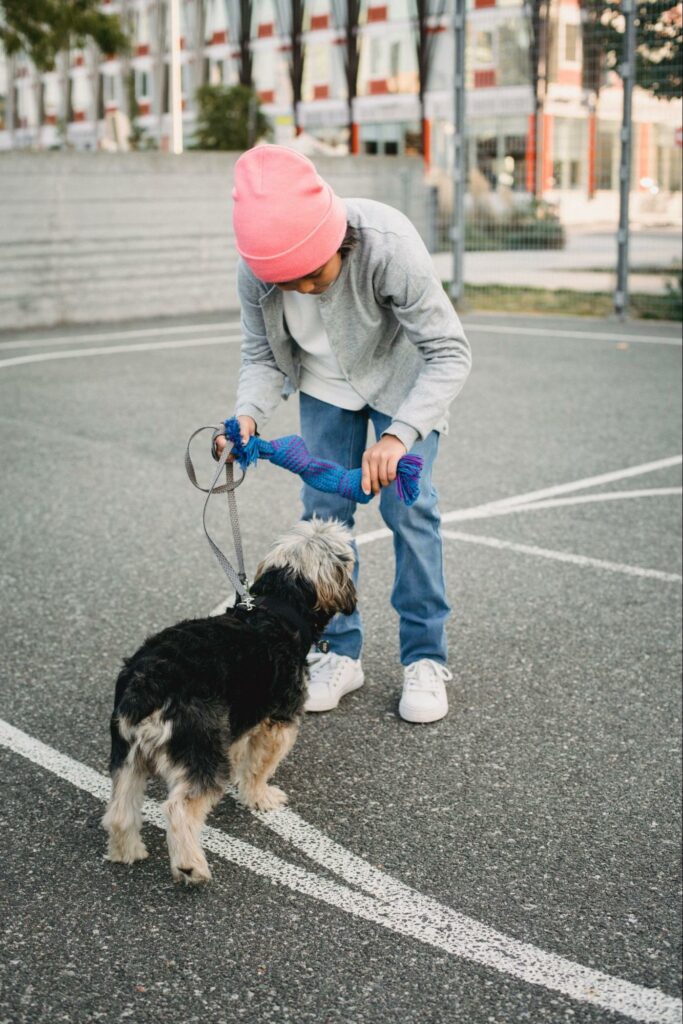Best Dog Breeds for Families
Of course, the best way to have a family-friendly dog is to ensure that the dog considers every human member of the family as its Pack Leader. That being said, here is Cesar’s Way’s take on some of the best dog breeds for families.
Bulldog
The great advantage of bulldogs? They’re sturdy, so they can take anything that rambunctious kids throw at them, while they’re not very energetic. End result? A dog that will put up with a lot. They’re also not picky about where they live, so both small apartments and large houses are fine.
Beagle
If you don’t mind a bit of high maintenance when brushing and bathing, Charlie Brown’s best friend is an ideal dog for families with children. Energetic and friendly, beagles are also sturdy and mostly child-proof, and your kids will wear out before they do. They also make good nannies that can help you herd the young ones at bedtime and have endearingly humorous habits, like howling, which can be very amusing in small doses.
Bull Terrier

Spuds McKenzie, Buster Brown’s Pal, and the preferred canine baby sitter of yesteryear, bull terriers are intelligent, energetic, and friendly dogs that can take a lot of roughhousing while remaining calm. Particularly suited to large families, they don’t complain too much when manhandled by children and can help teach kids how to relate to dogs properly. Plus, they’re just charming and adorable. While they are energetic and require lots of playtimes, they will also help wear your kids out — the more, the merrier — and will return the favor by being very protective of them.
Collie
One word: Lassie. In fact, Lassie was one of the two dogs (the other was Rin Tin Tin) who inspired a very young Cesar Millan to become a Pack Leader in the first place. While its long coat is high maintenance, its tendency to herd your children may be helpful, at least in their early years. Beyond that, collies love nothing more than to make their humans happy, and it’s not a stretch to imagine that you could train yours to alert you to a fire in the barn or to remind you that you’ve left your cell phone on the dining room table before rushing off to work with a well-timed bark and whine. Sadly, though, no one has yet been able to train this breed to cook.
Newfoundland
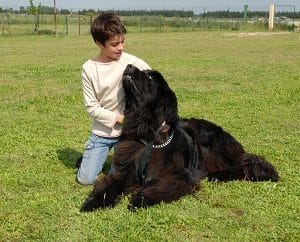
Because of their natural love of children, the Newfoundland has been dubbed “Nature’s Nannies.” Large and sweet, it’s hard not to fall in love with them, and they will return the favor. While they can drool and shed a lot and suit a family with large open spaces, they will also tend to wind up wherever the family is. Basically, they are gigantic, lovable furballs who desire nothing more than to keep watch on their pack members.
Vizsla
Originally a middle-European hunting dog, and little known outside of its native Hungary, the Vizsla is gentle, loyal, quiet, and affectionate. It does require a lot of exercise — not a problem if you have energetic children. Still, it prefers to spend a lot of time indoors with its family and is very eager to learn and show off. If you want to teach your children by train dogs, then this breed is a good choice.
Irish Setter

A better choice for families with yards because of their energy, Irish Setters are wonderful with children, because they are playful and energetic. One word of warning, though — their life spans are among the shorter ones for larger breeds, so you should only choose an Irish Setter if you want to teach those inevitable life lessons while your children are in middle school. Twelve years is considered old age for the breed, and few make it to fifteen.
Poodle
Please note, only the standard poodle is a good family dog. Miniature poodles tend to be very high strung and not suitable for families with children. Standard poodles are intelligent and gentle and are ideal for children with allergies, as they do not shed as much as other breeds. Otherwise, they are good-natured and make excellent playmates for children.
Labrador Retriever
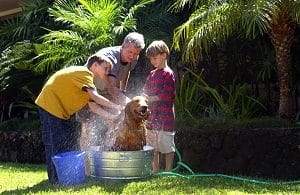
One of the most popular breeds all around, we have documented Labradors elsewhere as the best dog to have if you’re looking for a date, the only breed accepted for training as arson dogs, and one of the more popular breeds for service dogs. For a family, there’s hardly a better choice. Labradors love to please their humans, being playful, protective, loving, and reliable. There’s nothing that a Lab loves more than to show off by learning a new trick, even if they manage to learn that new trick before you’ve taught it to them. They are canine Einsteins. All of these things make them one of the best dog breeds for families.
Golden Retriever
Goldens are almost everything a Labrador is, except with a much shorter life span than the Irish Setter — twelve years at the most, but ten more likely. Their main asset is extreme patience, helpful around children, as well as their high energy. Frequently used as service dogs, they were initially bred as gun dogs and are avid swimmers.
Mutts
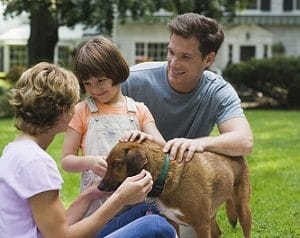
Bonus choice:
- Go to your local shelter, and consider rescuing a mixed breed dog.
- Consider a mixed breed in any case.
- Look for a dog that matches the energy level of your family, keeping one thing in mind — mid-size and larger dogs are great for families, while small breeds are not. If you have children, avoid Chihuahuas or Yorkies or anything you could pick up with one hand; look at terriers, retrievers, or other bigger dogs.
In general, if you’re not afraid of injuring it by stepping on it, then it’s probably durable enough for children. Once again, remember: Whatever dog you bring into the family, all of the people in the household need to be the Pack Leaders, whether adults or children. Follow this rule from day one, and no matter what dog you adopt, you’ll have an enjoyable experience.
What Qualities Should I Look for in a Family Dog?
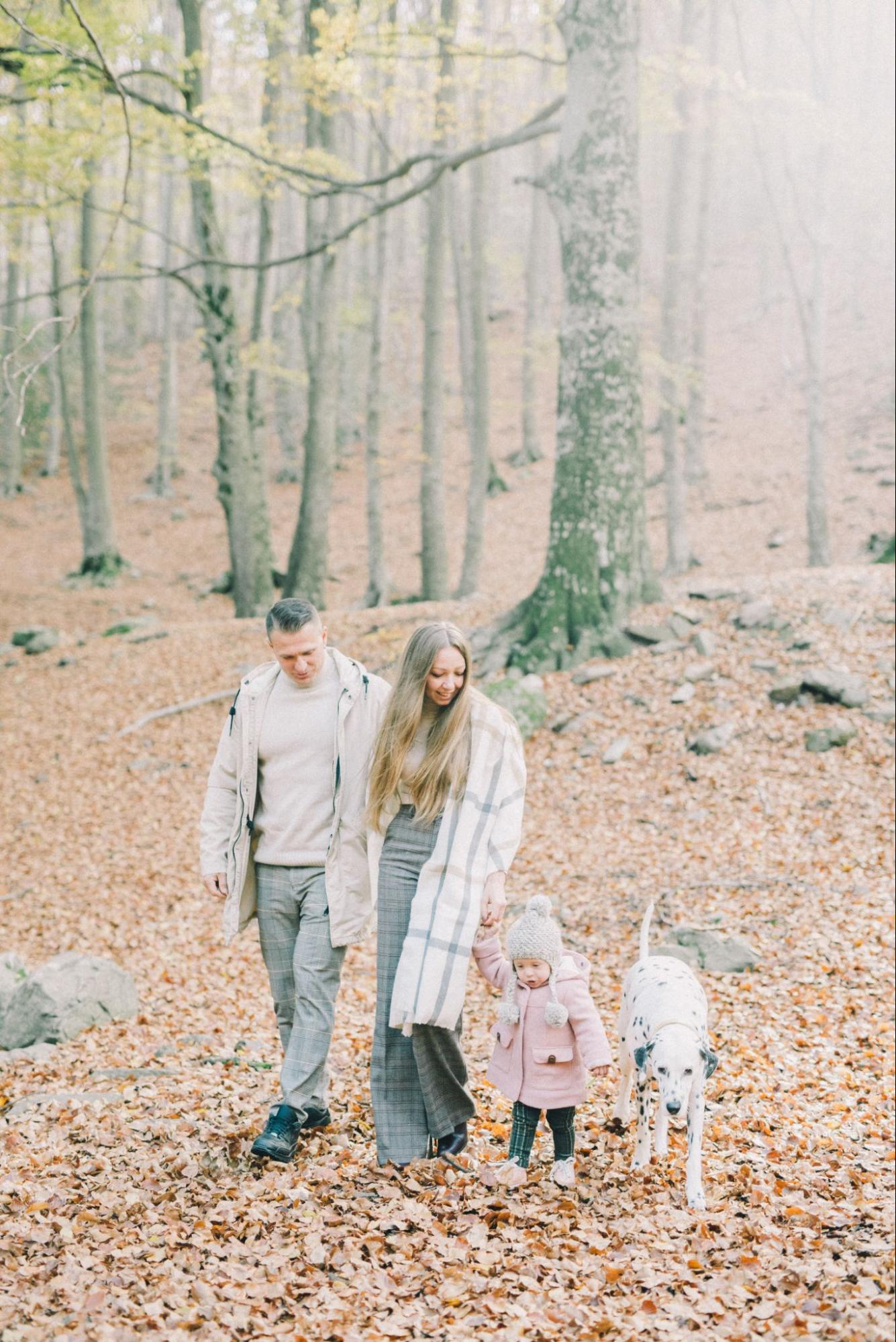
What Breed Factors Are Important When Choosing a Dog for My Family?
Personality
Energy Level
Shedding and Grooming
Trainability
Size
Not Prone to Barking
The Benefits of Dogs for Families with Kids
Good Health
Learn Responsibility
